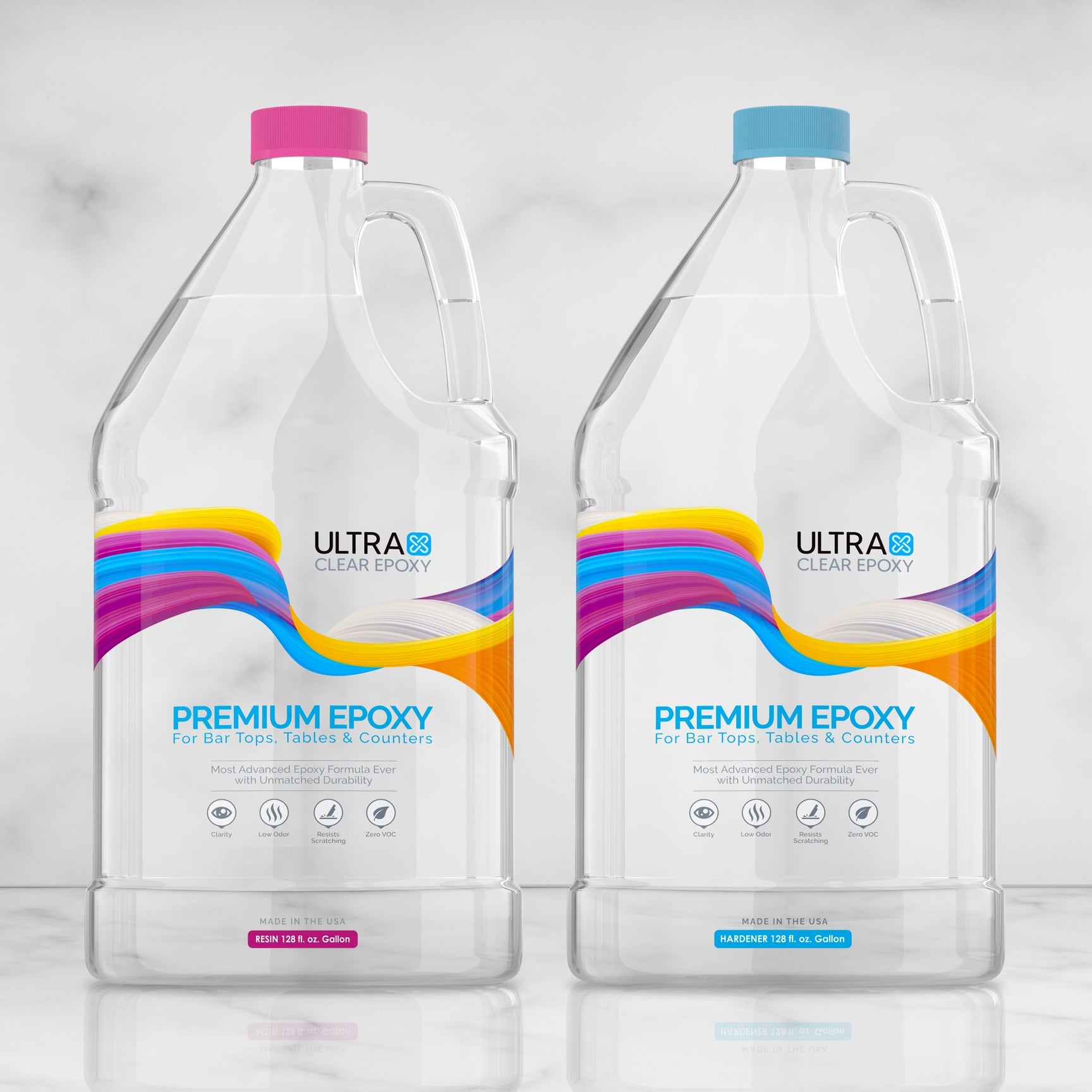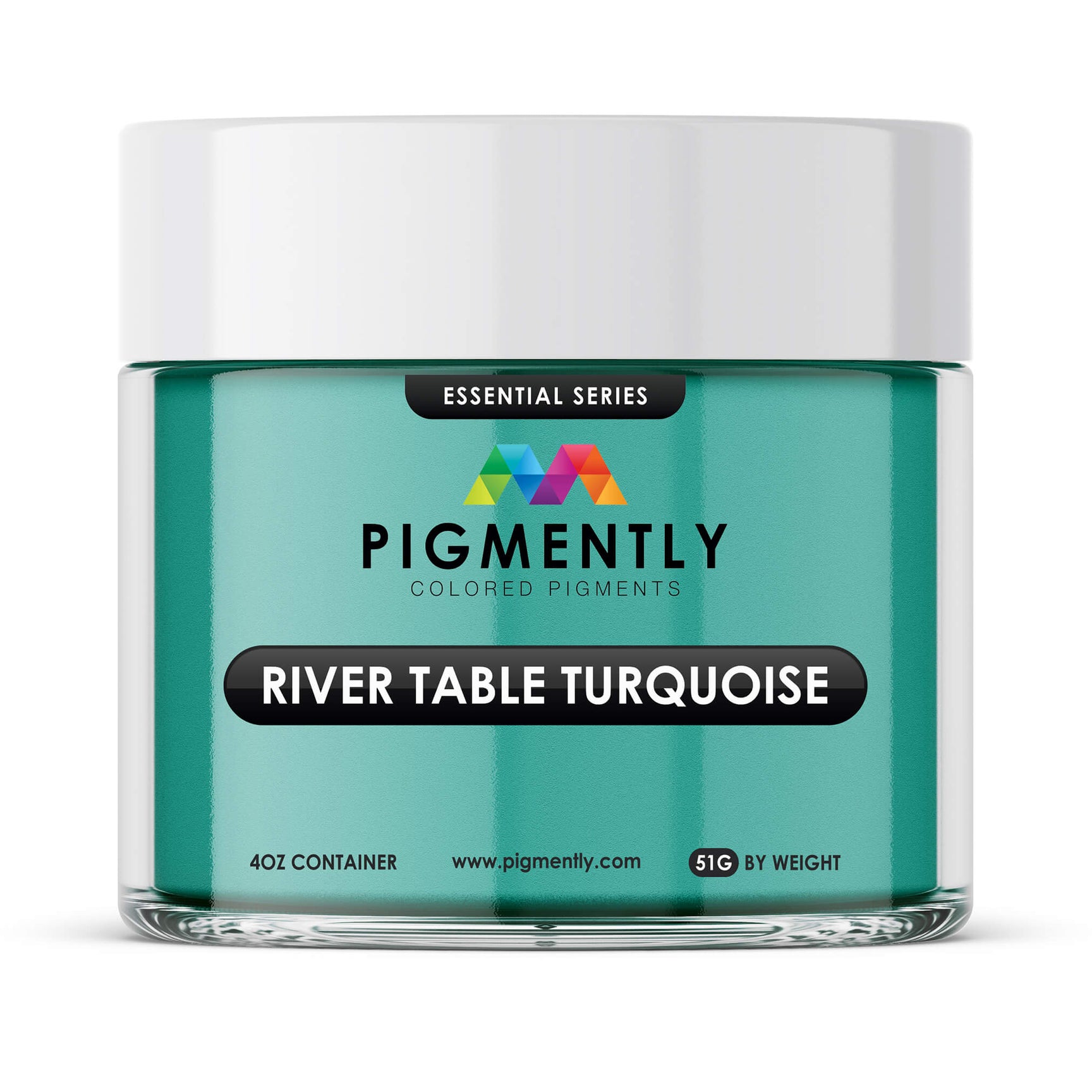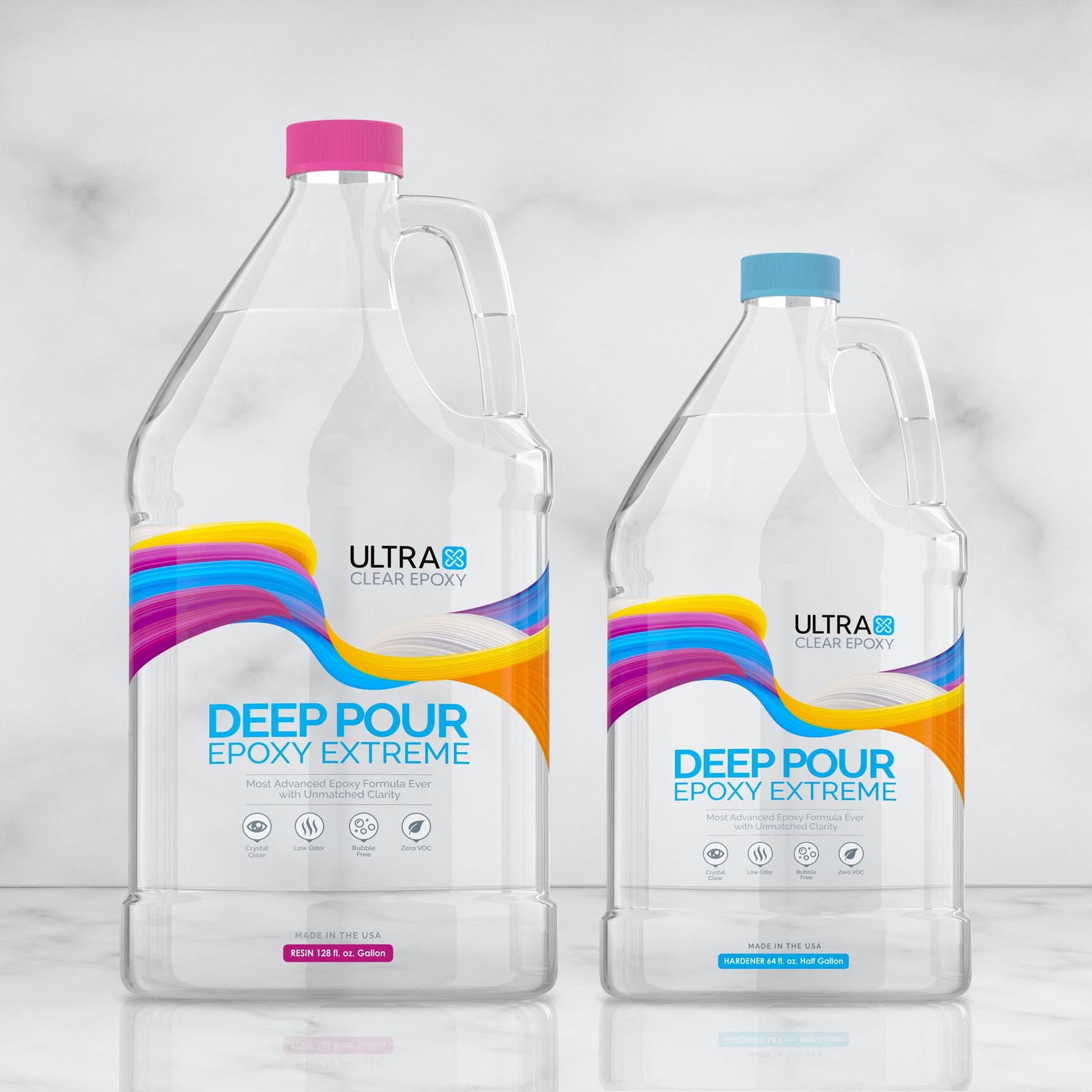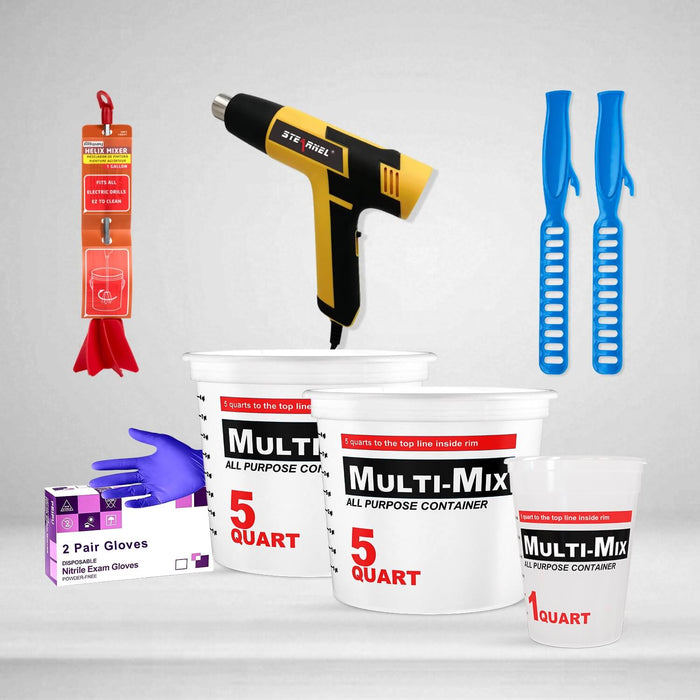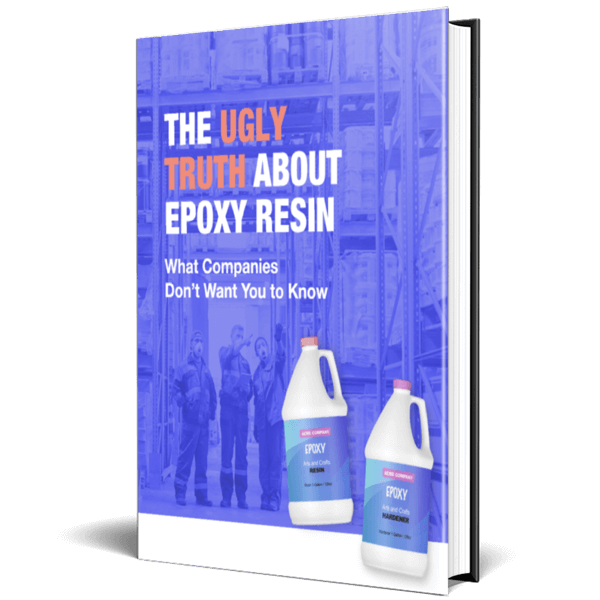When planning a kitchen renovation, it's pretty likely you'll include your countertop as part of the project. Renovating your countertop is an exciting prospect, as it is usually the most eye-catching feature of a home kitchen.
Usually when planning, renovators will choose to simply change their countertop surface to one of a few typical options for such an upgrade, like granite or marble.
They're often unaware of one of the best options available: an epoxy countertop.
The case for choosing epoxy for your countertop
Epoxy resin is a versatile substance generally used as a protective coating for visually attractive materials that are otherwise too fragile or unsuitable as a countertop on their own.
It can also be used to enhance genuine countertop materials such as granite, quartz, etc., greatly increasing their lifespan.
Epoxy is innately transparent like glass, and it can even be infused with colorful pigments to change its opacity and hue as desired. This glasslike appearance allows epoxy to showcase the material it's preserving.
Applying epoxy makes many additional materials viable as a countertop, because they can just be given a proper coating of epoxy to transform them into countertop ready surfaces.
Epoxy isn't just for domestic purposes, either. Epoxy countertops are frequently used in high-traffic commercial settings like bars and restaurants.
This is a good indicator of how durable they are. Epoxy surfaces are also easier to clean and less expensive to repair or maintain in general than mineral or stone-based materials like quartz, granite, and marble.

More specifically, what is epoxy?
Epoxy is what we usually call the cured form of epoxy resin (though the terms are interchangeable).
Essentially, it's a sleek plastic polymer that has the appearance of glass without the fragility.
Epoxy resin is usually stored as two liquid components: the resin itself and a hardener; this type of resin is called two-part epoxy.
When these two components are mixed together thoroughly, the resin will start to cure. Curing is a chemical reaction that causes the epoxy to incredibly harden over the course of a few days.
At the beginning of this process, it's still very liquid like, though slightly viscous. While in that state it can be poured onto a substrate material or into an appropriate casting mold (usually made of silicone).
Two-part epoxy resin is available in different types with different purposes. Though most of them can be used for the same basic concept, each of them excels at certain things.
For epoxy countertops and similar projects, a variant called table top epoxy is used. When poured on a material, table top epoxy will self-level, spreading neatly as far as it can until it settles into a layer of about 1/8 of an inch thick.
The materials it has been poured onto to bond with are called the substrate.
From that point it will bond with the substrate and continue to cure until gradually it has become strong and hyper durable.
A high-quality cured table top epoxy can withstand tremendous impact (e.g., denting), has high scratch resistance, and chemical resistance. It has some heat resistance, though not as much as other materials.
It's also incredibly smooth, preventing liquid and moisture from permeating the surface. This is in contrast to granite and similar materials, which can absorb liquids like juice or coffee, leaving difficult stains.
In other words, the epoxy seals and protects the substrate, allowing you to choose something less conventional, such as many types of wood, without having to worry about long-term damage that can arise from things like humidity, general wear, or accidental impacts (e.g., a dropped heavy object).
Are epoxy countertops difficult to craft?
While epoxy initially has its share of challenges, it's nothing that most contractors will find unfamiliar or difficult to work with.
Once it has hardened, there's very little upkeep, so most of the effort is in properly applying a seal coat before the pouring phase and monitoring it occasionally as it cures.
It's also important to measure correctly. Each epoxy type has a ratio (e.g., 1:1, 2:1) that you mix the resin and hardener in.
Many epoxy beginners choose to handle epoxy projects themselves, avoiding the cost of contractors entirely. However, for a countertop project, this isn't recommended unless you already have experience with similar ventures.

How expensive are epoxy countertop projects?
An epoxy countertop project won't typically be more expensive than similar endeavors with granite, marble, etc.
The cost of epoxy itself is relatively low by comparison, so the determining factor is mostly what material you choose to use as your substrate.
For example, wood is available in numerous different varieties, and rare types of wood can be very pricy. Most quality wood, however, isn't nearly so much.
We've found that most of our customers have spent less than originally expected upon finishing their projects.
Is each table top epoxy brand the same?
There are many brands of epoxy available these days.
At this point, unfortunately, it's difficult to know which of those are from trustworthy makers who are willing to use only quality components for their mixtures, without any toxic additives or other cost-cutting measures that weaken the result.
We can't tell you which of those other brands are safe to use, but here at UltraClear Epoxy, our epoxy resins are all premium-grade.
If you're looking for a trustworthy epoxy brand, we'd love for you to consider us.
You can view our epoxy resins on the following pages:
- UltraClear Table Top Epoxy - This is our strongest, most durable finish. Perfect for epoxy countertops, table tops, bar tops, and more.
- UltraClear Deep Pour Epoxy - This is our deep pour casting resin. It's ideal for crafting river tables, epoxy veins, or silicone casting molds, and in the creation of resin jewelry and art.
If you buy from us, you can expect your epoxy finish to be free of toxic materials, including VOCs (volatile organic compounds), which is a common concern.
And as always, you'll also have access to our comprehensive customer support.
Have questions? Want advice? Contact us!
At UltraClear Epoxy, we pride ourselves on providing top-notch customer service.
If you have questions about epoxy countertops, or if you'd like advice in planning an epoxy project, please reach out to us.
You can contact us via phone or email here.
During business hours, you can also text chat directly online with one of our epoxy experts by clicking the Help button at the bottom right of your screen.


